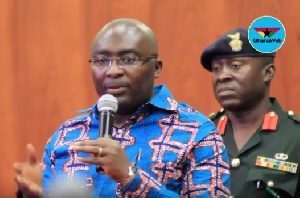Ghana's future depends on developing its skill-base with free education for all, Vice President Dr Mahamudu Bawumia has said.
According to him, the aim of providing free secondary school education for all was to build a "core of human capital" in the country.
This would leave the country less vulnerable to fluctuating commodity prices, which has helped some of the world's poorest countries grow during boom years, translating into long-term benefits, he explained.
Dr Bawumia said these at the high-level session of UNCTAD's Trade and Development Board in Geneva, Switzerland.
He further underlined the need for Ghana's economy to diversify to rely less on commodities, like cocoa beans, precious metals and bauxite.
"We don't want to just be raw material-producing economies. We want to add value to our raw materials. And in the process of adding value you build productive capacity," he said.
"We are encouraging every district in Ghana to set up a factory. We have a One-District, One-Factory initiative to try to boost industrial productivity and we believe that, that enhances productive capacity," he added.
In reference to the Marshall Plan - a US-funded recovery package for Europe after the Second World - Dr Bawumia said that an initiative was being prepared next year to help the country's agricultural sector.
He added that well-structured partnerships with the private sector would be key, as governments have tended to "take on too much" in the past.
Business News of Friday, 15 September 2017
Source: classfmonline.com

















